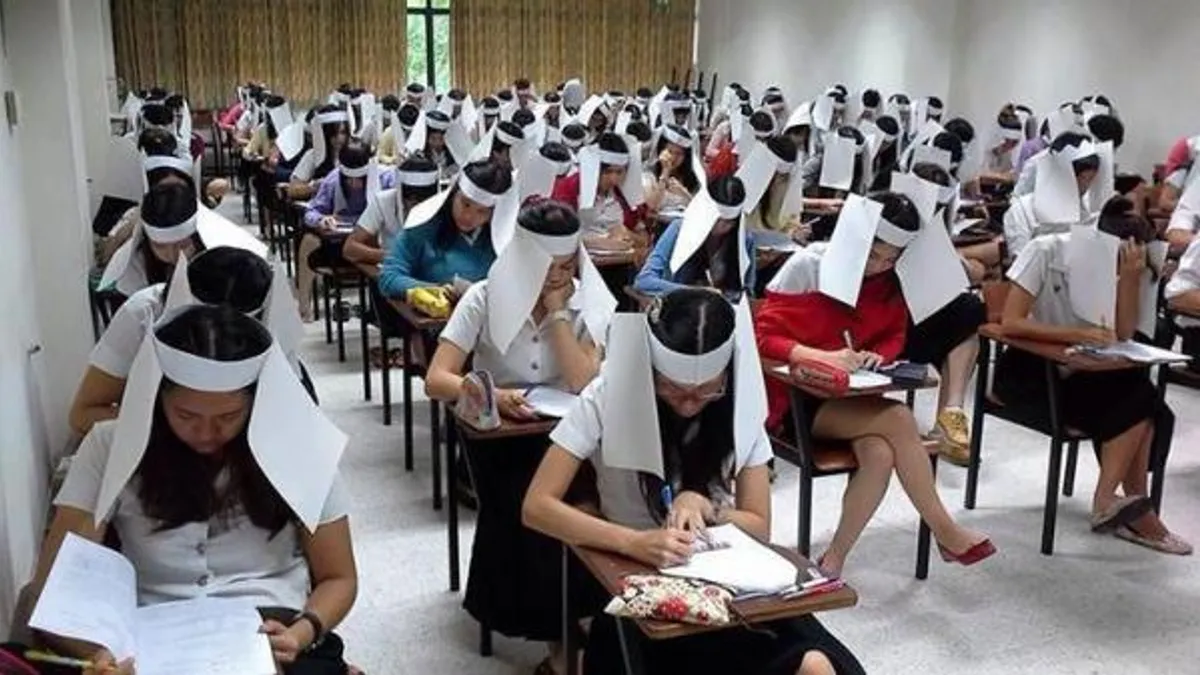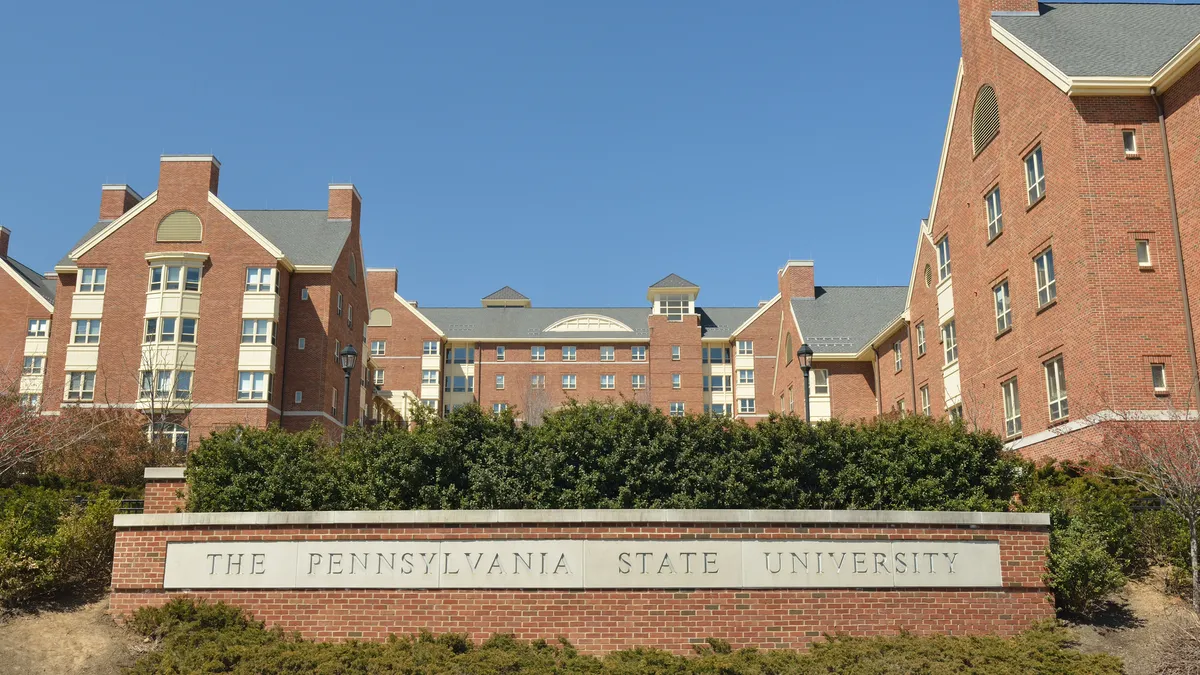The time that students, especially in K-12, spend preparing for standardized exams has been a source of controversy in education for well over a decade now. With the increase of technology in schools, moves to digital platforms, and other factors, the lengths to which schools go to prevent students from cheating has also garnered a fair amount of attention.
While some cases have infamously involved educators themselves fudging scores in an attempt to avoid high-stakes consequences associated with students' scores, efforts by faculty and administrators worldwide to prevent academic dishonesty have run the gamut from Big Brother-esque invasions of privacy to over-the-top headgear. Read on for four of the more attention-grabbing examples in recent years.
Pearson monitors students' social media accounts
In March, Pearson made headlines due to its practice of monitoring students' social media accounts for mentions of exams it developed, which include the Common Core-aligned PARCC. Needless to say, the news left parents and educators feeling a bit uneasy. In a letter to staff in her New Jersey district, Watchung Hills Superintendent Elizabeth Jewett wrote, "I find this a bit disturbing—and if our parents were concerned before about a conspiracy with all of the student data, I am sure I will be receiving more letters of refusal once this gets out."
Overhead cameras in U of Central Florida's business testing lab
Profiled in July 2010 by The New York Times, the testing lab at the University of Central Florida's College of Business is outfitted with overhead cameras, software allowing proctors to monitor students' screens in real-time, date-stamped scratch paper, and 228 computers recessed into desktops in order to prevent students from taking photos of screens. At the time, the school touted only 14 suspected cases out of 64,000 exams, and Associate Dean Taylor Ellis told the Times that while he'd never completely stop cheating, he'd find out about it. By November, however, even the lab's extensive measures weren't enough to prevent a cheating scandal that saw around a third of Professor Richard Quinn's class of 600 allegedly cheat.
Thailand's paper hats and boxes on heads
On the low-tech end of things, Thailand's solution to cheater prevention all comes down to creative headwear. A viral Facebook post in 2013 showed students at Bangkok's Kasetsart University wearing "anti-cheating blinkers" — essentially paper headbands with additional sheets of paper attached on either side of the wearer's head. A later photo allegedly showed test-takers at Thailand's Civil Aviation Centre wearing boxes on their heads for the same purpose. Both photos surfaced as Harvard University was still experiencing fallout from its own cheating scandal, prompting a humorous post from the Harvard Crimson student newspaper.
Drones monitor test-takers for Chinese college entrance exams
Regardless of whether they start delivering Amazon orders anytime soon, drones are already being used to monitor students during high-stakes exams. In June, The Huffington Post detailed how China used a six-propeller drone to scan for signals from unauthorized devices being used by hundreds of students taking college entrance exams at two testing centers in the city of Luoyang. With the increasingly high-stakes nature of testing in America, might we see the same measures stateside in the near future?
Would you like to see more education news like this in your inbox on a daily basis? Subscribe to our Education Dive email newsletter! You may also want to read Education Dive's look at how tech-driven learning can benefit students with disabilities.















